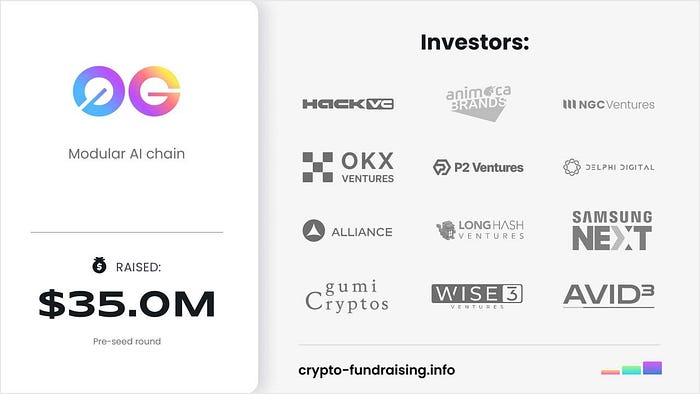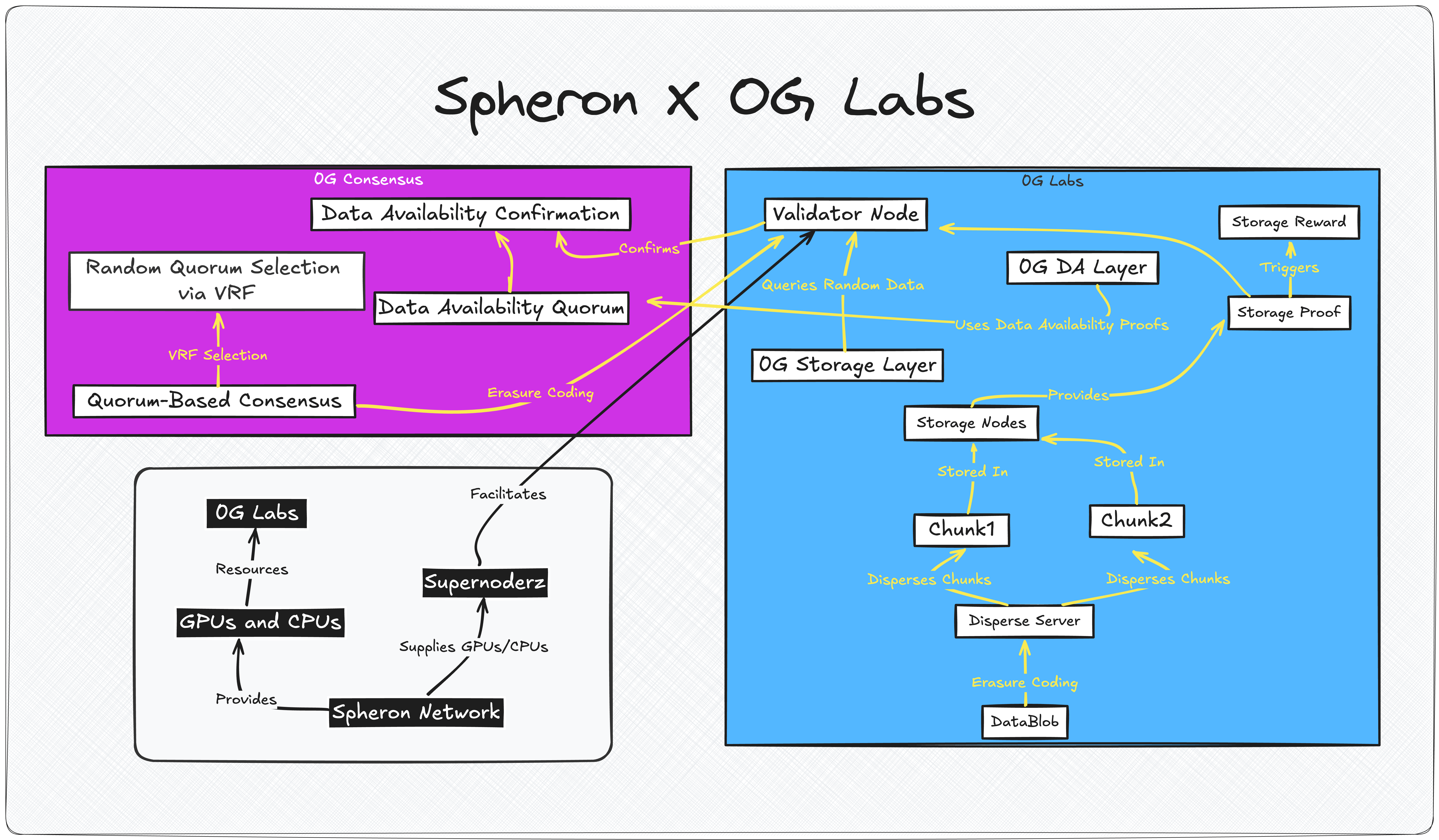<
0G Labs Investors
0G recently closed a $35 million funding round with backing from major Web3 investors like Hack VC, Bankless, Delphi Digital, and Polygon. This strong investor base highlights the potential and credibility of the project.

Compute Meets Infinite Scalability: Spheron and 0G Labs Unite
Spheron Network and 0G Labs have formed a strategic partnership to transform decentralized infrastructure. By combining Spherons expertise in scalable compute solutions with 0Gs advanced data availability layer, this collaboration aims to boost the performance of decentralized networks. Spheron will supply GPUs and CPUs to power 0G Labs, enhancing the efficiency of their on-chain database and data services.
Additionally, Spheron’s Supernoderz platform will make it easy for users to deploy 0G Labs nodes with a simple one-click setup. This partnership will create a stronger and more accessible decentralized ecosystem, enabling advanced applications in DeFi, AI, and more. Together, Spheron and 0G Labs will drive the growth of decentralized technologies and innovation in the Web3 space.

How can you get involved?
There are numerous ways to engage with 0Gs growing ecosystem:
Join the Community: Become part of 0Gs discussions on Discord, visit the official website, and subscribe to their newsletter.
Amplify Awareness: By following and sharing updates on Twitter, Telegram, LinkedIn, and relevant forums to help spread the word.
Contribute: Participate in content creation initiatives, submit feature suggestions, or attend webinars to deepen your knowledge of 0G.
Community contributors can earn rewards like early access to testnets, 0G tokens, and NFTs. Stay tuned to official channels for upcoming engagement opportunities.
Testnet Newton v2 is live
The journey to revolutionize Web3 begins now! 0GLabs Testnet Newton v2 is live, packed with powerful features to empower users and developers on the road to unlock groundbreaking on-chain use cases
Conclusion
0G Labs is at the forefront of solving some of the blockchain industry’s most pressing data scalability challenges. With its innovative architecture and growing ecosystem, 0G Labs is poised to play a crucial role in the future of blockchain and Web3 applications.
]]>
Source link










